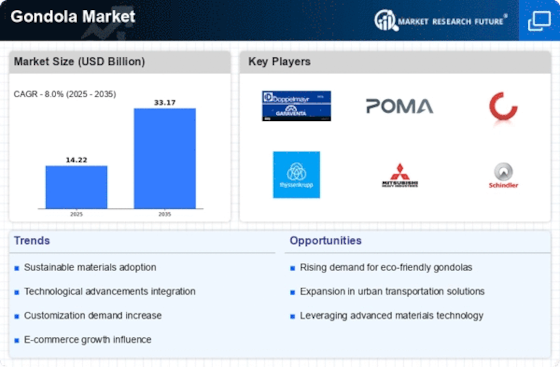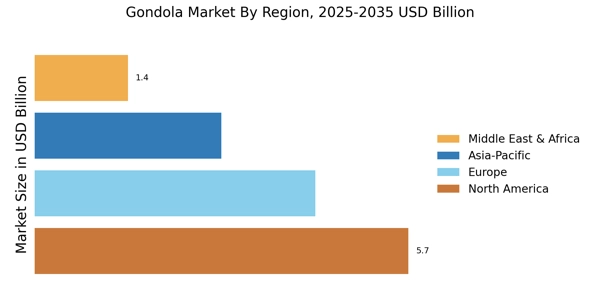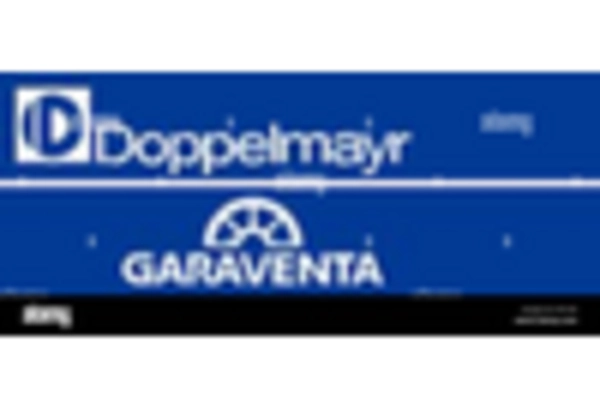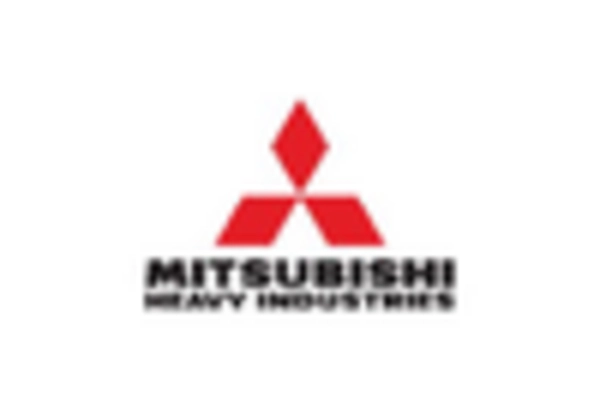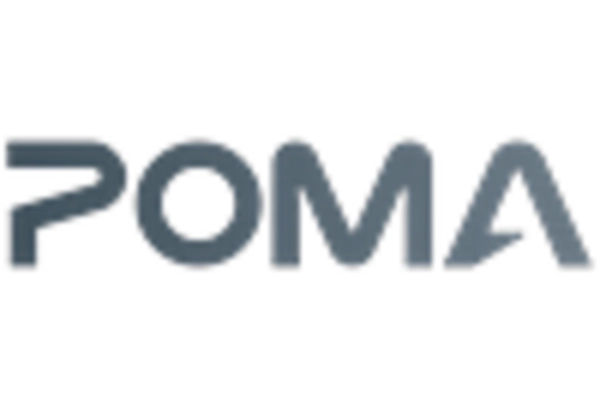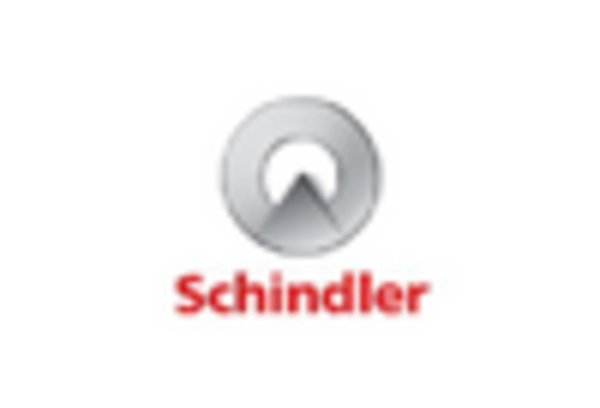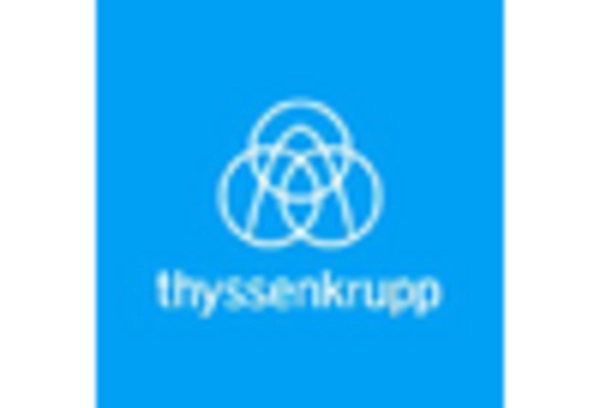E-commerce Growth
The Gondola Market is likely to see a surge in demand due to the rapid growth of e-commerce. As online shopping continues to gain traction, brick-and-mortar stores are adapting by enhancing their in-store displays to compete effectively. Retailers are increasingly investing in gondola shelving to create visually appealing product displays that can entice customers. According to recent data, e-commerce sales are projected to surpass 6 trillion dollars by 2024, prompting traditional retailers to rethink their in-store strategies. This shift indicates a potential increase in gondola installations as businesses strive to create an engaging shopping environment that complements their online presence.
Sustainability Initiatives
The Gondola Market is increasingly impacted by sustainability initiatives as retailers strive to adopt eco-friendly practices. There is a growing demand for gondolas made from sustainable materials, reflecting a broader trend towards environmental responsibility in retail. Many companies are now prioritizing the use of recyclable and biodegradable materials in their shelving solutions. This shift not only meets consumer expectations but also aligns with corporate sustainability goals. As a result, the Gondola Market is likely to see a rise in the production and adoption of eco-friendly gondolas, potentially leading to a market growth rate of 4% annually as businesses seek to enhance their sustainability profiles.
Rising Demand for Retail Space
The Gondola Market is experiencing a notable increase in demand for retail space, driven by the expansion of shopping centers and supermarkets. As urbanization continues to rise, more retailers are seeking efficient shelving solutions to maximize product visibility and accessibility. This trend is reflected in the projected growth of the retail sector, which is expected to reach a valuation of over 30 trillion dollars by 2025. Gondolas, with their versatile design, are becoming a preferred choice for retailers aiming to enhance customer experience and optimize floor space. The Gondola Market is thus positioned to benefit from this retail expansion, as businesses invest in modern shelving solutions to attract and retain customers.
Increased Focus on Customer Experience
The Gondola Market is significantly influenced by the growing emphasis on customer experience in retail environments. Retailers are recognizing that an engaging shopping atmosphere can lead to higher sales and customer loyalty. Gondolas play a crucial role in creating organized and visually appealing displays that enhance the overall shopping experience. As businesses invest in improving store layouts and product presentation, the demand for gondola shelving is likely to rise. This trend is supported by research indicating that well-designed retail spaces can increase sales by up to 20%. Consequently, the Gondola Market is poised for growth as retailers prioritize customer-centric strategies.
Innovations in Design and Functionality
The Gondola Market is witnessing a wave of innovations in design and functionality, which is likely to drive market growth. Manufacturers are increasingly focusing on creating gondolas that are not only aesthetically pleasing but also highly functional. Features such as adjustable shelving, integrated lighting, and modular designs are becoming more prevalent. This trend aligns with the evolving needs of retailers who seek to enhance customer engagement and streamline operations. As a result, the Gondola Market is expected to benefit from these advancements, with a projected growth rate of around 5% annually over the next five years, reflecting the increasing importance of effective merchandising solutions.


